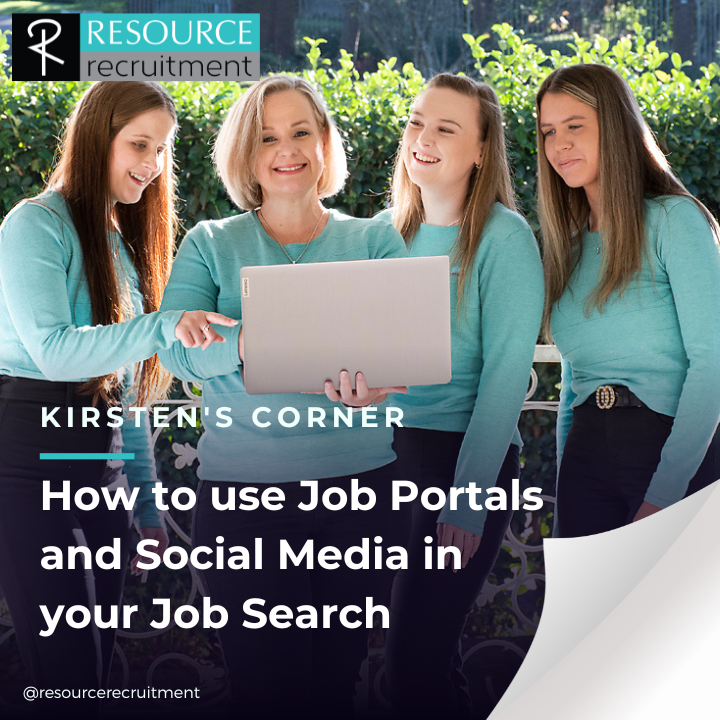
20 Feb How to Use Job Portals & Social Media in Your Job Search
How Job Portals Work and How to Leverage Them
& Social Media When Looking for a New Job
Job portals and social media are two of the most powerful resources for modern job seekers. If you’re unfamiliar with how they work or how to maximize their potential, this guide will walk you through everything you need to know.
What Are Job Portals and How Do They Work?
Job portals are online platforms that connect employers with job seekers. They serve as a centralized hub where companies post job vacancies, and candidates can search, apply, and track job openings. These platforms have become a primary tool for both employers and candidates in today’s digital world. Popular job portals include:
- PNet
- Career Junction
- Careers24
- Executive Placements
- Indeed
Key Features of Job Portals
- Job Listings: Employers post their job vacancies on these platforms, allowing job seekers to browse and apply directly.
- Search Filters: Job portals have filters to help you narrow down search results by location, industry, experience level, and salary range.
- Job Alerts: You can set up alerts for specific job titles, keywords, or companies so you don’t miss relevant opportunities.
Optimize Your Profile on Job Portals
Your profile is your online resume. Most job portals allow you to create a profile that can be viewed by employers. Make sure your profile is up to date, complete, and tailored to highlight your skills and experiences.
Tips for optimizing your profile:
- Upload an updated resume: Your resume should be up to date and in a format that is easy to read by both recruiters and Applicant Tracking Systems (ATS). (A searchable PDF document is best – not images, google docs, scans and screenshots.)
- Use relevant keywords: Job portals often use ATS to screen resumes. Make sure to use keywords related to the job role you’re applying for. Read more about Keywords here.
- Showcase your skills: Highlight both technical and soft skills to make your profile stand out.
- Complete your profile: A complete profile has a higher chance of being seen by employers. Include all sections like certifications, education, and any relevant work experience.
Leverage Social Media in Your Job Search
Social media has become an indispensable tool for job seekers. Platforms like LinkedIn and Facebook allow you to connect with hiring managers, network with industry professionals, and discover job opportunities in real time.
-
LinkedIn: Your Professional Network
LinkedIn is the most popular social media platform for professionals and a must-use tool in your job search. It’s not just a social network; it’s a powerful job search engine.
Tips for leveraging LinkedIn:
- Complete your profile: Just like a resume, your LinkedIn profile should highlight your skills, work experience, and education. Be sure to include a professional photo and a compelling headline.
- Network: Connect with professionals in your field, including potential employers, industry leaders, and peers. Join LinkedIn groups related to your industry and engage in conversations.
- Job Search: Use LinkedIn’s job search tool to apply directly for positions. Many companies post their openings on LinkedIn, and you can apply with just a click.
- Ask for recommendations: Reach out to previous colleagues, professors, or mentors and ask them for recommendations or endorsements for your skills.
-
Facebook: Join Job Search Groups
Facebook isn’t just for socializing—it’s also a valuable job search tool. Many Facebook groups are dedicated to posting job opportunities, especially in certain locations or industries.
How to use Facebook for your job search:
- Join job search groups: Look for Facebook groups focused on job opportunities in your area or industry. Join local groups for specific job markets, as they often post openings from small businesses or startups.
- Follow company pages: Many businesses post job listings on their Facebook pages. Be sure to follow companies you’re interested in.
- Network with friends: Facebook is a great way to tap into your personal network. Let friends know you’re job hunting—they may be able to refer you to open roles.
-
Leverage Instagram for Creative Roles
If you’re in a creative field, Instagram can be a goldmine for finding job opportunities. Many companies, especially in design, fashion, marketing, and media, use Instagram to showcase their work culture and post job openings.
How to use Instagram for job hunting:
- Follow industry leaders: Stay updated on industry trends by following companies, professionals, and agencies in your field.
- Use hashtags: Search for job-related hashtags such as #JobOpening, #NowHiring, and specific ones like #CreativeJobs or #MarketingJobs.
- Showcase your work: If you’re in a creative field, use Instagram as a portfolio to showcase your projects and creative skills. This will attract potential employers.
Job portals and social media are indispensable tools for job seekers. With the right approach and consistent effort, these digital resources will help you navigate the job search process and land your next great opportunity!
Read more about Registering on Job Portals
Happy job hunting!
#JobSearch #Hiring #JobOpening #NowHiring #JobAlert #JobSeekers #JobHunt2025 #LinkedInJobs #JobSearchTips #CareerOpportunities



